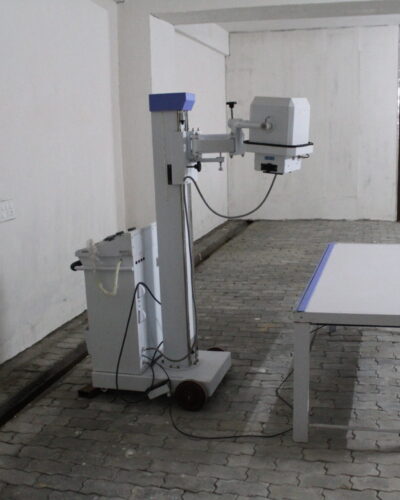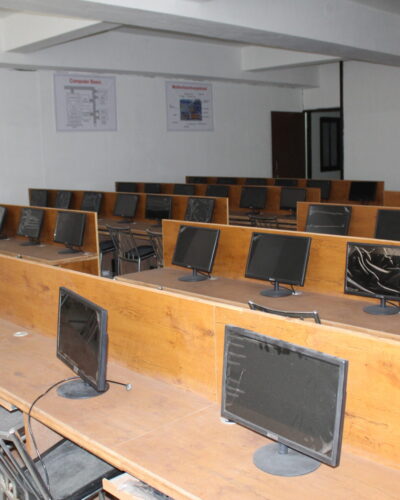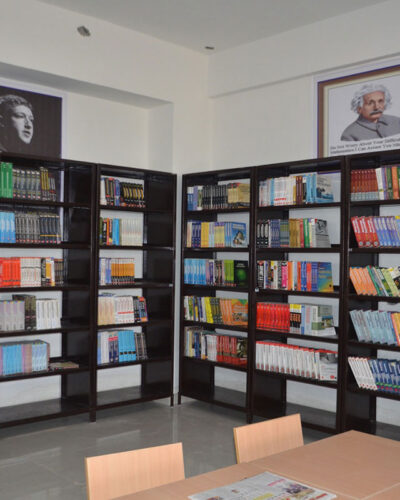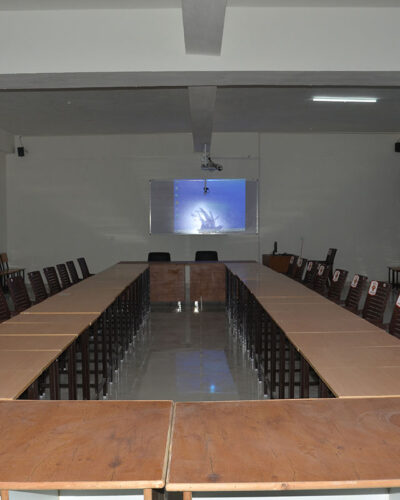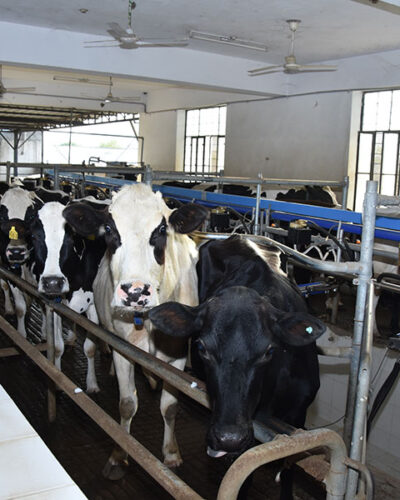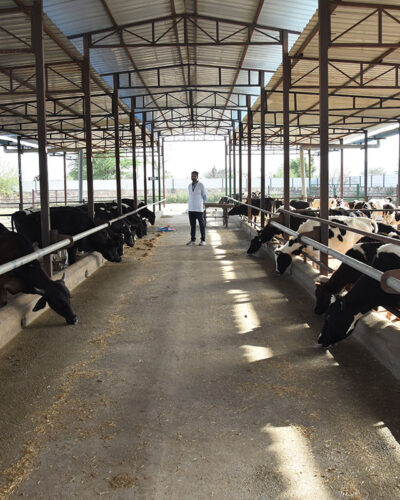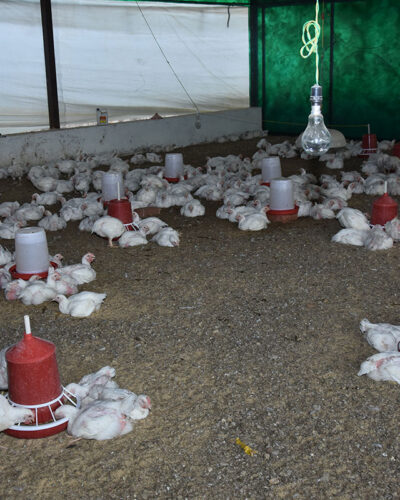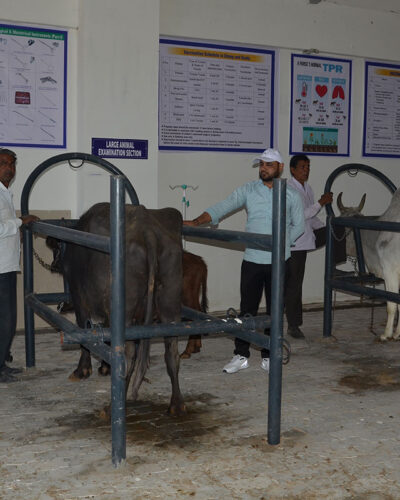Shekhawati veterinary college
SHEKHAWATI VETERINARY COLLEGE has been established with a broad vision and great mission to promote merit amongst students in professional courses. This institute follows the course curriculum for B.V. Sc. & A. H. as per the minimum standards of Veterinary Education (MSVE 2016-2017) prescribed by Veterinary Council of India (VCI), New Delhi.
The college is characterized by a powerful collaborative and professional culture. It firmly believes in the vision, trust, teamwork and the power of relationships. The environment is meticulously nurtured which enables and encourages new ideas to flourish which are required to excel in this informative globalized world. The college provides expert faculty and excellent facilities, which are essential for accomplishing the goals as determined by the aspirants. The three-story building is available for teaching and extension education with well-equipped laboratories, smart classrooms and well facilitated residential accommodation for college students and faculty. It also possesses a Veterinary Clinical Complex that facilitates with Veterinary Diagnostic Lab, Clinical Pathology Lab, Animal X-Ray Machine, Ultrasound Machine and Operation theatres for both large and small animals. The college have also a Livestock Farm Complex facilitates with different species of animals, poultry birds and own automatic milking parlor.

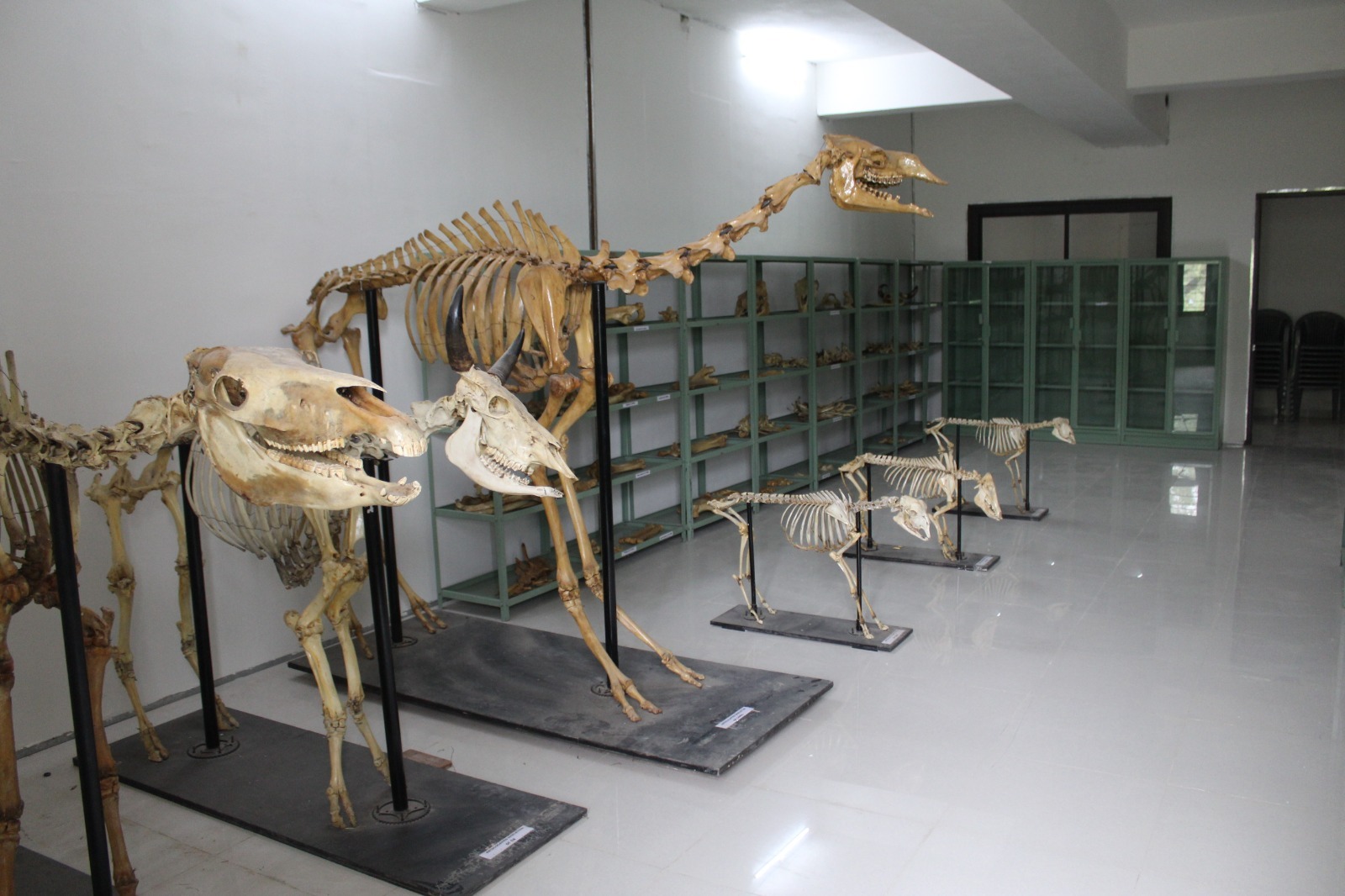
MISSION
To develop excellent Teaching and Research program in the area of Veterinary and Animal Sciences including Dairy science. To develop human resources to serve the growing needs of dairy processing industries in rural India. To develop entrepreneurship skills among students by exposing them to real working situations by means of experimental learning.
VISION
To become an internationally recognized center of excellence in Veterinary and Animal Sciences Education and Research for the creation, dissemination and transfer of knowledge.
FOCUS
To accomplish the vision and mission, focus will be to effect paradigm shift in education delivery system, research invention, innovation continuum in the field of Veterinary & Animal Sciences Technology and dissipation of information and technology output to the farmers/entrepreneurs.
B.V.Sc. & A.H.
The B.V.Sc. & A.H. degree course is of five and half years duration (four and half year of course and 12 month of compulsory internship as per Veterinary Council of India, New Delhi).
Admissions are made under two categories
- State Quota (40 Seats) : Admission will be made through NEET (National Eligibility cum Entrance Test) as per the rules and regulation made by Rajasthan University of Veterinary and Animal Sciences (RAJUVAS) Bikaner, Rajasthan.
- Management Quota (40 Seats): Admission will be made by the SVC based on NEET subject to fulfillment of their eligibility conditions. Notification for the same will be issued by the SVC through Regional, National dailies and College website.
Note
- Necessary information regarding the vacant seats under State Quota will be notified on the official website of RAJUVAS / VCI / College.
- The person seeking admission, it is their responsibility to keep themselves updated for the admission process by visiting the official website of RAJUVAS / VCI / College regularly.
ELIGIBILITY (As per VCI norms)
Candidates must have completed the minimum age of 17 years as on 31st December and there is No upper age limit as per VCI, New Delhi.
Candidates must have passed the higher secondary examination conducted by a Statutory Board under the 10 + 2 pattern of secondary education or any other examination recognized to be its equivalent (equivalent to class XII of 10 +2 pattern).
Candidates under general category must have 50% aggregate marks in English, Physics, Chemistry and Biology/Biotechnology in the qualifying examination.
The candidates belonging to the SC/ST or other special category as specified by the Government from time to time & the marks required for the admission shall be 5% less than that prescribed for general category i.e. 47.5%.
He/She shall have to appear for the NEET for admission.
Note
All the rules and regulations regarding the admission and eligibility of the candidate will be as per rules MSVE – 2016 (VCI norms).
Fees
The Duration of the Course is Five and a half years. The total fees of the course for the State Quota is Rs.27.50 lacs and Rs. 35 lacs for the Management Quota. The fee is to be paid by a student in the following manner:
(ACADEMIC SESSION 2023-24)
| S.N. | YEAR | DURATION | SEATS | |
| STATE/VCI QUOTA | MANAGEMENT QUOTA | |||
| 1 | 1st | 1 Year | Rs. 5.5 Lacs | Rs. 7 Lacs |
| 2 | 2nd | 1 Year | Rs. 5.5 Lacs | Rs. 7 Lacs |
| 3 | 3rd | 1 Year | Rs. 5.5 Lacs | Rs. 7 Lacs |
| 4 | * 4th (a) 1st Installment (b) 2nd Installment |
1 Year 6 Months | Rs. 5.5 Lacs | Rs. 7 Lacs |
| Rs. 5.5 Lacs | Rs. 7 Lacs | |||
| 5 | Internship | 1 Year | NIL | NIL |
| TOTAL | 5 Years 6 Months | Rs. 27.50 Lacs | Rs. 35 Lacs | |
| Caution Money (One Time -Refundable) | Rs. 50,000/- | Rs. 50,000/- | ||
Hostel Fee:
- Non-AC: 90,000/-Rs. Per Year
- AC: 1,20,000/-Rs. Per Year
Departments
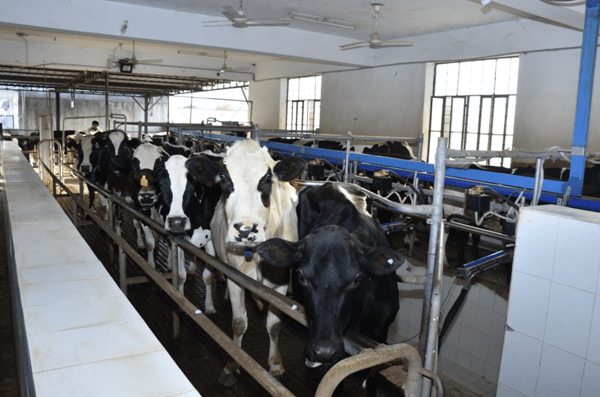
Livestock Farm Complex
It is an independent department of the Instructional Livestock Farm Complex (ILFC). This department is actively involved in imparting high-quality teaching and hands-on training to students in the rearing of livestock species. This department helps in teaching and training students on various farm animals viz. cattle, buffalo, sheep, goat, horse, pig, poultry, and other regional animals.
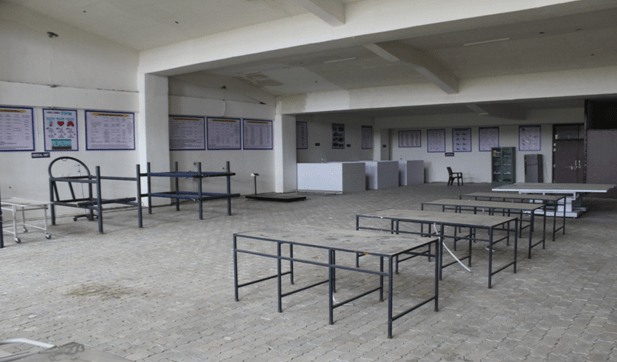
VETERINARY CLINICAL COMPLEX
The department of VCC is a very important part of Veterinary College. It has two major sections of treatment; one for large animals and the other for small animals. It has operation theaters for bovine, equine, and canine. Specialized services are provided to animal owners regarding the diagnosis and treatment of various ailments. It has a well-maintained Veterinary Diagnostic lab, X-ray, and Ultrasound facilities. Expert services are provided by highly qualified faculty from Veterinary Medicine, Surgery and Radiology, and Veterinary Gynecology and Obstetrics. The diagnostic lab is maintained and served by faculty from departments of Pathology, Veterinary Biochemistry, and other para-clinical departments.
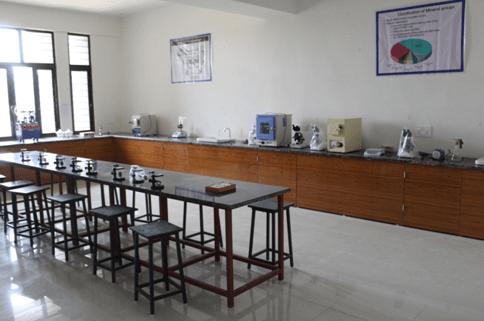
Animal nutrition
Animal nutrition is a critical subject that involves the study of the nutritional requirements of animals, including the various nutrients needed for growth, maintenance, and production. In animal nutrition classes, students learn about the various feed ingredients used in animal diets and their impact on animal health and productivity. They also gain an understanding of the digestive system and the role of gut microorganisms in animal nutrition.
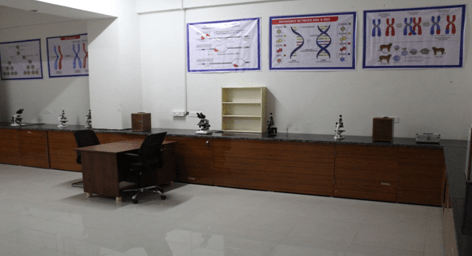
Animal genetics and breeding
Animal genetics and breeding is an essential field of study for students interested in animal science and related fields. In this subject, students learn about the principles of genetics, including genetic variation, gene expression, and inheritance patterns, and their application in improving animal health and productivity. They also gain an understanding of molecular genetics and genomics, which are used to study the genetic basis of traits and develop genetic tools for animal improvement.
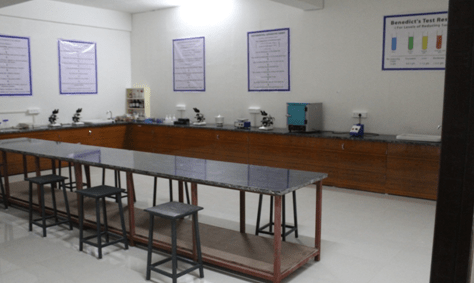
Veterinary Pathology
In veterinary pathology classes, students learn about the various types of diseases that affect animals, including infectious, neoplastic, metabolic, and degenerative diseases. They learn about the gross and microscopic changes that occur in animal tissues and how to interpret the results of laboratory tests.
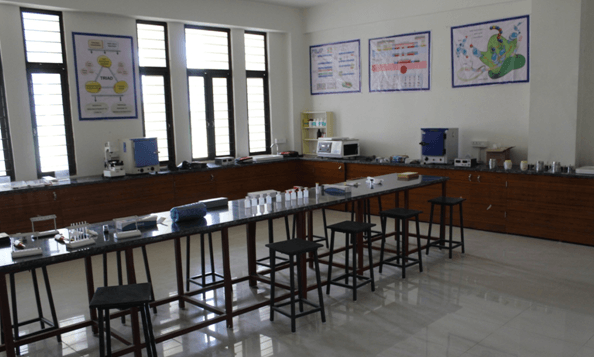
Veterinary Microbiology
Studying veterinary microbiology is essential for students interested in pursuing careers in veterinary medicine, animal health, and research. The knowledge and skills gained from this subject are essential for ensuring the health and well-being of animals and preventing the spread of zoonotic diseases.
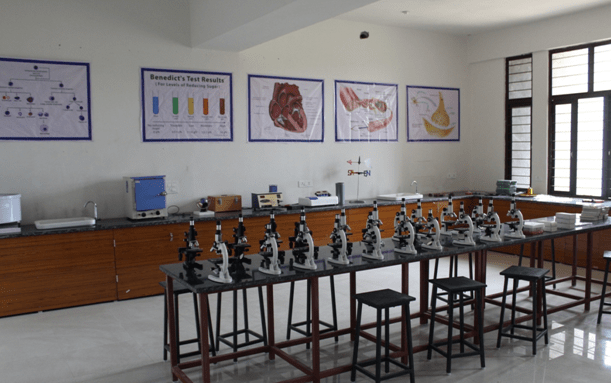
Veterinary Physiology & Biochemistry
This department has established laboratories with sophisticated equipment for Electrocardiography; Hematology, Blood Biochemical Analysis, and Mineral Estimations. The ultra-modern types of equipment are used for undergraduate teaching. SVC College of Veterinary Sciences possesses state-of-the-art facilities for students including an Automatic Hematological Analyzer, Spectrophotometer, Viscometer, Urinometer, Meteorological instruments (Max and Min thermometer, Wind Vane, Flame Photometer, Paper Chromatography System, Fume-hood, Blood Chemistry Semi Auto-Analyzer, etc.)
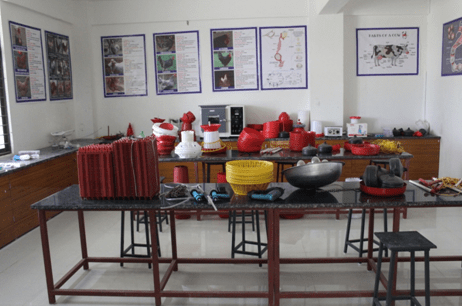
Livestock Production Management
The Department of Livestock Production Management is one of the major parts of the animal sciences department of SVC. The department has established a breed museum with good photo laminations, three-dimensional models of important breeds, and housing models of various species of livestock including cattle, buffalo, sheep, goat, swine, rabbit, and horse.
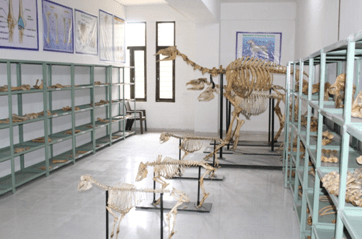
Veterinary Anatomy
Sound knowledge of anatomy and physiology is an essential basis for the effective clinical treatment of companion animals and farm animals alike. SVC provides comprehensive and detailed classes of anatomy and physiology of all animals by the Department of Veterinary Anatomy. We provide detailed descriptions of exotic small species including birds, and domestic farm animals, including cows, sheep, horses, and pigs.
Our Core Features
Library
An excellent library having stacking and reading room measuring 3000 sq ft is available for staff and students in the main building of the college. At present more than 3000 books of different disciplines, scientific journals, copies of M. V. Sc. and Ph. D. thesis, departmental manuals, magazines and newspapers are available. Card cataloging system is used for library references. Photocopier, computer with internet and Wi-Fi facilities are also available.
Meeting / Conference Hall
A spacious air-conditioned meeting/conference hall is available in the college main building. It has a capacity of 150 seats. Interactive audio visual cum LCD facilities are available. These facilities will be being used for meetings, technical seminars, professional competitions and contests, personality development etc. A modern auditorium is also available in main building.
Games And Sports
There is an exclusive playground near to the main building and excellent facilities are available for indoor and outdoor games / sports etc. All the students will be encouraged to take part in sport activities. A modern and fully functional gymnasium is also available.
Computer Cell / Aris Cell
The SVC is equipped with well-structured computer labs with more than 250 with latest configuration technologies and high-quality computers. Printers and scanners are provided in each and every lab and each computer is connected with high speed dedicated network . All computer labs are connected with a 24 Hrs uninterrupted power supply..
Ambulatory Clinic
service on nonpayment basis in the adopted villages of the college. Apart from serving the animals at the doorstep of the farmers, the students will also get an opportunity to interact, manage and treat the cases in animal health and treatment camps under the well-qualified and experienced clinicians in various fields of specialization.
Livestock Farm Complex (Lfc)
Livestock Farm Complex is an independent department of SVC. It will imparts hands-on training and practical orientation to the students . LFC has Cattle, Buffalo, Sheep, Goat, Camel, Equine, Pigs, Broiler and Layer units. It also has raised a laboratory animal house for rabbits and guinea pigs.
Veterinary Clinical Complex
Veterinary clinics is an integral part of SVC academic activity. It provides treatment to the sick animals and at the same time students will get hands-on training on various types of clinical cases. The college is planning to create a centre of excellence for equine i.e., stud management and health care unit. In addition, initiatives have also been taken for critical animal health care and disaster management. The Clinical complex has the facility of therapies related to acupuncture therapy, hydrotherapy, physiotherapy etc.
Field Visits
Academic training is incomplete in the absence of effective field oriented Veterinary Education. Students will be sent on field visit to specialized animal institutes / Veterinary hospitals and animal farms as per needs. This will help in better understanding of the subject matter. The students will able to acquaint themselves and interact with the actual field problems of livestock owners. The visit will give an exposure to the practical aspects of the subject and enable the students to understand the practical utility in a holistic manner.
Student Hostel
A Five story modern hostel building for boys to accommodate nearly 200 students is available. A separate independent girls hostel with double seated room is also available under the strict supervision of two lady faculty members. The hostels are well equipped with modern facilities like indoor games, gymnasium, TV and reading room. The hostel have modern dining facilities. Air-conditioned rooms are also available in both the hostels, which will be allotted to the students on additional payment.






